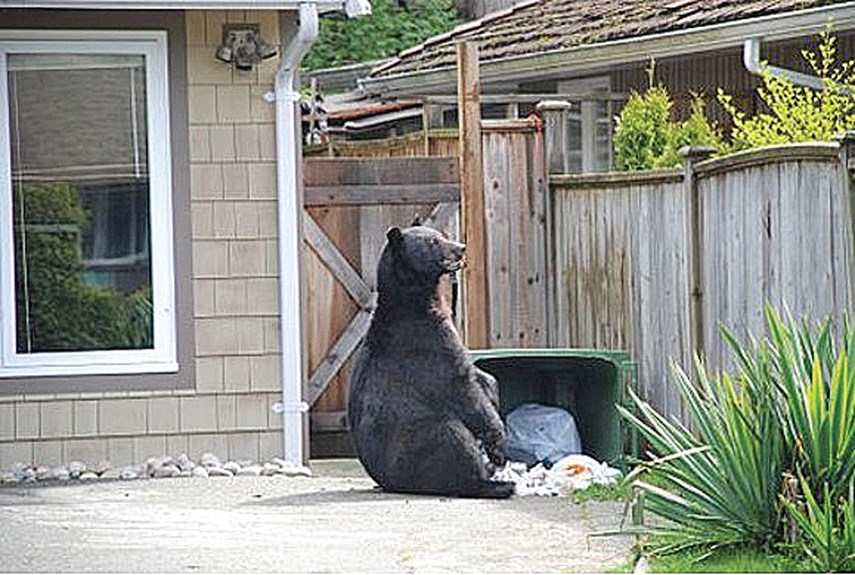Living with wilderness in our backyards is one of the biggest blessings of living on the North Shore, but it comes with a unique set of responsibilities. With the great outdoors so close to home, it is important to remember that we share these spaces with wildlife. It’s up to each of us to take measures to keep our neighbourhoods safe for all.
This summer, the District of North Vancouver began piloting a program in partnership with the North Shore Black Bear Society to enforce its Solid Waste Removal bylaw, which limits how early garbage and organics carts can be set curbside on collection day. The bylaw requires that containers for garbage, food waste, yard trimmings and recyclable material be placed out for collection no earlier than 5:30 a.m. and no later than 7:30 a.m. on designated collection days.
Garbage and organics carts tempt bears and other wildlife into residential areas, especially if containers are left out for long periods of time. Reducing the time these materials sit curbside means fewer reasons for wildlife, such as bears, to wander into our neighbourhoods looking for easy snacks. While our new locking carts are animal-resistant, they are not animal-proof. The locks help to deter wildlife but the best deterrent is handling your waste properly.
Once a bear becomes reliant on and accustomed to human food as its main food source, it is no longer able to be rehabilitated or relocated and must be destroyed. In B.C. last year, approximately 600 bears were euthanized due to these types of interactions with humans.
The Early Set-Out pilot program reminds residents of their responsibilities when it comes to placing their waste containers curbside. Residents placing containers out before 5:30 a.m. or leaving containers curbside for longer than 18 hours after collection are subject to a $100 fine; and residents placing containers out after 7:30 a.m. may not have their material collected.
Early numbers show that the pilot is having a positive impact. In one pilot neighbourhood of 163 households, instances of carts being placed out too early fell from 25 carts to none in the first three weeks. If this pilot program is successful in reducing the number of carts set out too early, it will be deployed on an ongoing basis to neighbourhoods where this is an issue.
There are also other steps you can take to make your garbage and food waste less tempting to wildlife: when placing food scraps in the organics cart, freeze or wrap them in newspaper beforehand; and take a moment to rinse out the inside of your organics cart occasionally to help prevent the buildup of food odours.
Backyards can also be home to other wildlife attractants. Fruit trees with ripe fruit and easily accessible bird feeders are prime examples of things that will draw a bear or other animal into residential properties. For tips on how to bear-proof your backyard visit dnv.org/bear-aware.
Sometimes a gentle reminder is all it takes for us to remember how our daily habits have an impact on wildlife and that with just a little extra effort, we can coexist peacefully.



